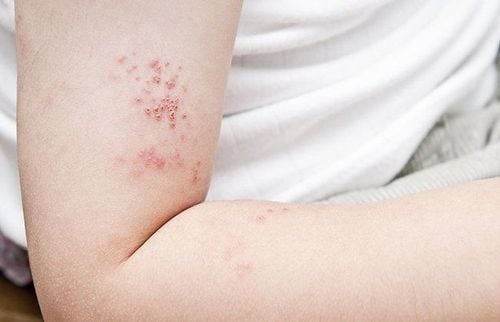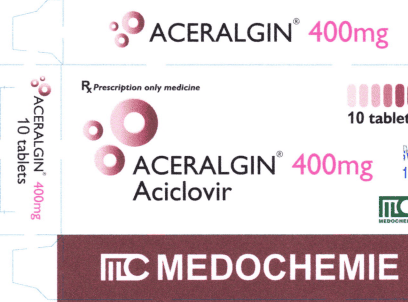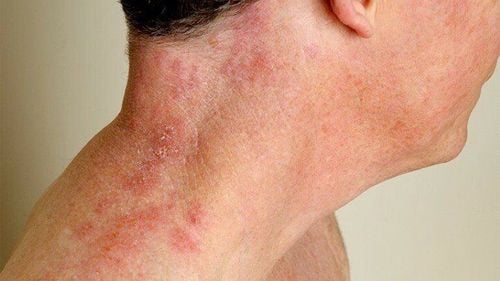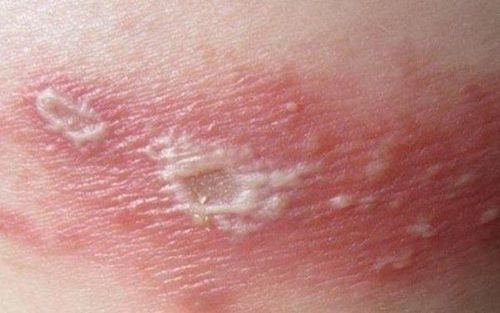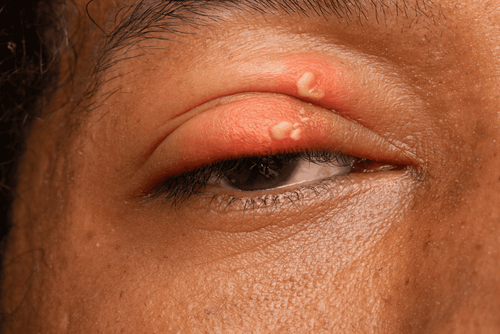This is an automatically translated article.
Shingles is a disease caused by the Herpes Zoster virus with symptoms such as rash, pain and blisters. To prevent this disease, people over 50 years old can get the Zostavax vaccine. So what is Zostavax and what should be noted when injecting?
1. What is Zostavax?
Zostavax is the name of a vaccine that prevents herpes zoster virus (popularly known as shingles) in people over the age of 50. Herpes Zoster is also the virus that causes chickenpox. After a period of infection with chickenpox (usually at a young age), the virus can continue to exist in the nerve roots of the human body in an inactive form. For reasons that have not been clearly studied, the virus can reactivate, leading to shingles with symptoms such as a rash, blisters, and pain. The Zostavax vaccine works by boosting the body's natural defense (immune system) against the herpes zoster virus, helping to prevent shingles symptoms from developing. Zostavax is not used to treat active shingles, nerve pain caused by shingles, or to prevent chickenpox. In particular, this vaccine is not for use in children.
2. How to use Zostavax
Patients need to carefully read all information about Zostavax vaccine provided by medical staff before injecting, if there are any questions about the vaccine, please consult medical staff.
Zostavax is a vaccine used subcutaneously by a healthcare professional, the injection site is usually in the upper arm.
3. Side effects of Zostavax
Common side effects of this vaccine include rash, itching, swelling, heat, bruising, and pain at the site of Zostavax injection. Other symptoms such as headache or fever may also occur after vaccination. If any unusual problems persist or worsen, the person receiving the vaccine should notify medical personnel immediately.
A small number of cases of using Zostavax vaccine have symptoms such as fainting, dizziness, vision changes or ringing in the ears right after the injection, then it is necessary to quickly notify the medical staff immediately if any. any of the above symptoms. Helping the sick person to sit or lie down is the most helpful remedial measure because these symptoms usually don't last long.
Notify medical personnel immediately if the person receiving the vaccine has any serious side effects, including the onset of chickenpox. A very serious allergic reaction to Zostavax is very rare with typical symptoms of an allergic reaction including: generalized rash, swelling with itching of the parts (especially the face/tongue/throat), severe dizziness or trouble breathing.
Any medicine or vaccine has a certain chance of causing unwanted side effects. Therefore, if the person injecting Zostavax notices other effects not listed above, contact a healthcare professional for assistance.

Thuốc Zostavax sử dụng qua đường tiêm dưới da
4. Notes when using Zostavax
Before subcutaneously administering the Zostavax vaccine, medical staff should take the patient's history of allergies to the drug and its ingredients as well as any other allergic conditions. Zostavax medicinal products contain inactive ingredients (such as neomycin, gelatin) that can cause allergic reactions or other problems.
Before administering the Zostavax vaccine, the injector should talk to the healthcare provider about his or her previous medical history, especially:
Fever or existing illnesses; Immune system disorders (such as HIV infection, certain cancers such as leukemia/lymphoma, or undergoing radiation therapy); Body reactions to other vaccines; Active tuberculosis has not been treated. Zostavax vaccine is not recommended for use during pregnancy. At the same time, people who have received Zostavax injections should not become pregnant for at least 3 months afterwards.
The possibility that Zostavax passes into breast milk is unknown, so consult your doctor before breast-feeding.
5. Zostavax drug interactions
Drug interactions can change the way Zostavax works or increase your risk of serious side effects. Some products that may interact with Zostavax include:
Medicines that weaken the immune system (including cyclosporine, tacrolimus, cancer chemotherapy, corticosteroids such as prednisone); Certain antiviral drugs (such as acyclovir, famciclovir, valacyclovir). Zostavax is a single-dose vaccine. Although Zostavax has been shown to reduce the risk of shingles, it may not provide complete protection for everyone who gets the vaccine.
Consult with healthcare professionals about the need for other vaccines to prevent possible serious illness (eg, flu shot).
Please dial HOTLINE for more information or register for an appointment HERE. Download MyVinmec app to make appointments faster and to manage your bookings easily.
Reference source: webmd.com




